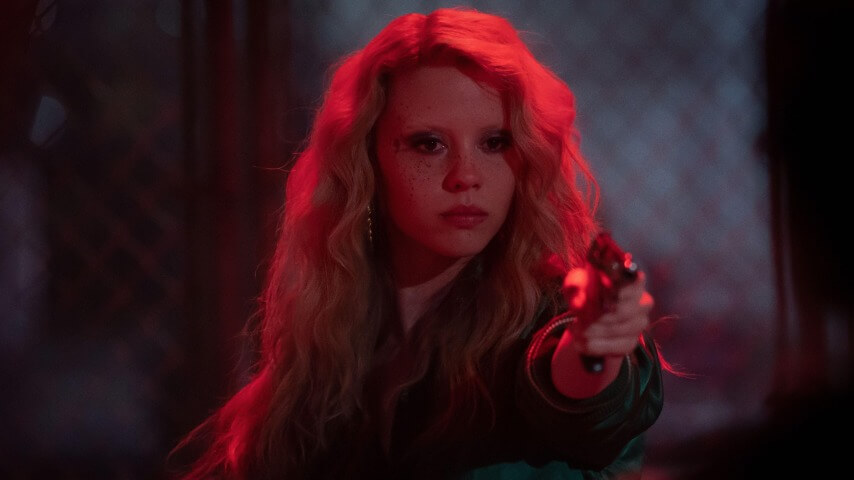MaXXXine review: Trilogy of sex and violence ends without a bang
Ti West and Mia Goth's unfocused finale is the weakest horror tale of the bunch

The ‘80s have a reputation as a decade of excess, a quality MaXXXine embraces to a fault: The third installment in Ti West’s trilogy of loosely connected slasher-ish horror movies has the unfocused enthusiasm of a coked-up producer throwing out ideas at a party. It could be, and probably will be, described as a “love letter” to a lot of things: Video stores, practical effects, porn, true crime, Hollywood, giallos, video nasties, the Universal backlot, a sort of dark-mirror take on the concept of “movie magic” in general. And sure, all of those elements are present in the film. But it doesn’t linger long enough, or go deep enough, to show much of an interest in any of them.
A lot and very little happens, as our plucky and tough-minded heroine—played, once again, by Mia Goth, who also serves as a producer—continues climbing the splinter-covered ladder of fame towards her delusional destiny. In the opening scene, she strides confidently onto a soundstage to audition for a horror movie from controversial female director Elizabeth Bender (Elizabeth Debicki). After some objectifying banter, Maxine stares down the camera and delivers a tearful, trembling monologue that proves that she’s more than just someone who “fucks on film.” She gets the part.
Then her Hollywood ending is threatened by an anonymous blackmailer who turns out to be private dick John Labat (Kevin Bacon). A very wealthy man has hired Labat to remind Maxine of her role in what a newspaper clipping calls “The Texas Porn Star Massacre” (a.k.a. the events of X), and the longer she refuses to talk to detectives Torres (Bobby Cannavale) and Williams (Michelle Monaghan) about it, the more people in her orbit are going to die. This very wealthy man is also connected to a Mulholland Drive-esque network of powerful perverts, which will come into play later on as Maxine and her “agent” Teddy Night (Giancarlo Esposito, in an endearingly bad wig) launch an investigation of their own.
Maxine’s scandalous profession gives West the opportunity to add a sticky coating to a film that’s set, at least in part, on the sleaziest street in America. (That would be Hollywood Boulevard, whose unique blend of tourist traps and trashy hedonism is captured in a typically slick montage.) And he does apply it in a pair of scenes: One backstage at a porn studio, and one set in a peep show booth that pays tribute to Cruising and Hardcore. But then West moves on, reducing the titillating and aesthetically pleasing world of ‘80s adult entertainment behind.
 Keep scrolling for more great stories.
Keep scrolling for more great stories.
